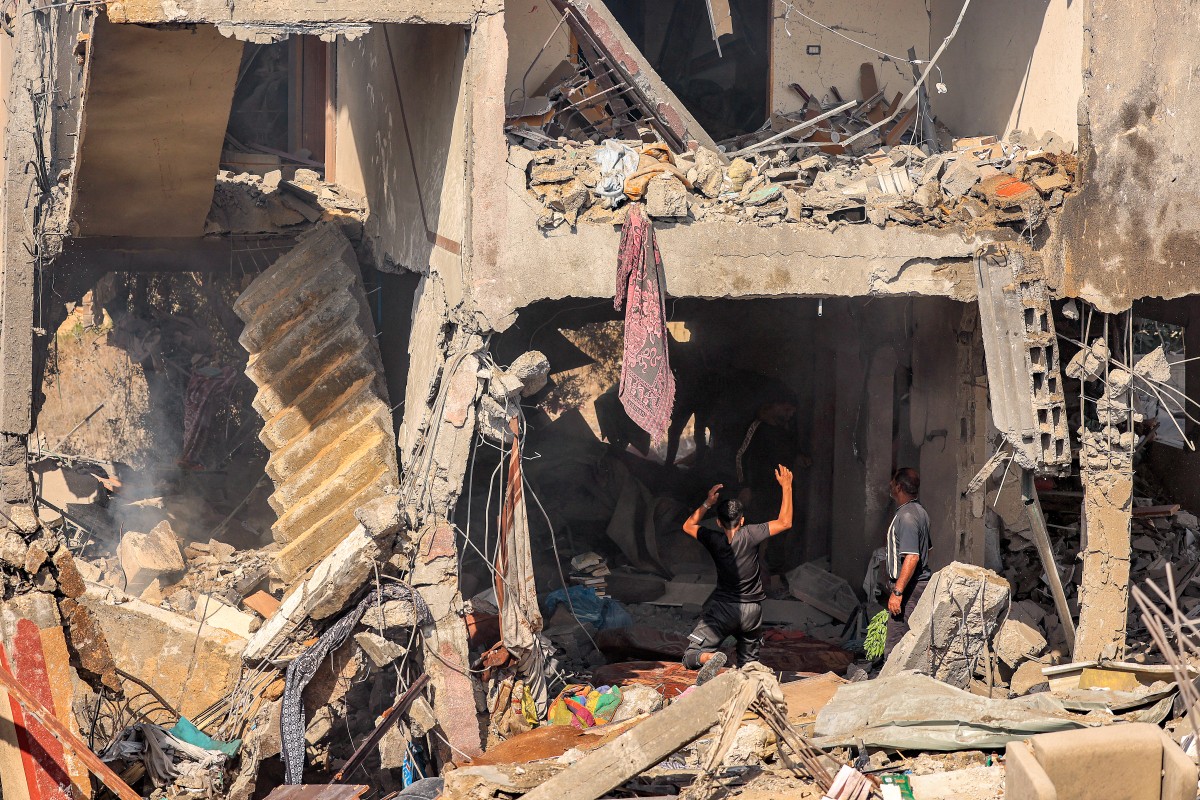Geneva, Switzerland – Israel’s widespread and systematic bombardment of housing and civilian infrastructure in Gaza is a war crime, as are the indiscriminate Hamas rocket attacks that hit Israeli dwellings, an independent UN expert said Wednesday.
A month of Israeli strikes on targets within the Gaza Strip have destroyed or damaged 45 percent of all housing units in the Palestinian territory, Balakrishnan Rajagopal said, warning the destruction comes at a “tremendous cost to human life”.
The UN special rapporteur on the right to adequate housing stressed that systematic or widespread bombardment of housing, civilian objects and infrastructure are strictly prohibited under international law.
“Carrying out hostilities with the knowledge that they will systematically destroy and damage civilian housing and infrastructure, rendering an entire city — such as Gaza City — uninhabitable for civilians is a war crime,” he said.
When such acts are “directed against a civilian population, they also amount to crimes against humanity”, he said.
Rajagopal stressed that civilian housing in Israel was also not a military object, warning that Hamas’s continuing indiscriminate launching of rockets from Gaza and elsewhere also constituted “a war crime”.
Israel launched its massive bombardment campaign in the Gaza Strip after Hamas members staged an unprecedented attack on October 7, killing more than 1,400 people, most of them civilians, and taking more than 240 hostages, according to Israeli officials.
According to the Hamas-run health ministry in Gaza, Israel’s bombardment has killed more than 10,500 people, most of them women and children.
Nearly 2,500 others, more than half of them children, have been reported missing and are most likely trapped under the rubble.
‘Domicide’
Rajagopal, an independent expert appointed by the UN Human Rights Council but who does not speak on behalf of the United Nations, had previously coined the term “domicide” to refer to the systematic and widespread attacks on civilian housing and infrastructure that cause death and suffering.
Domicide, he said, “is now being committed in Gaza”.
Around 1.5 million people have been displaced in Gaza amid the destruction and Israeli calls to evacuate the entire north of the territory, according to UN figures.
Rajagopal said the Israeli evacuation order, issued despite a lack of adequate shelter and aid for those fleeing and while cutting off water, food, fuel and medicine and repeatedly attacking evacuation routes and “safe zones”, was “a cruel and blatant violation of international humanitarian law”.
He said international humanitarian law is based on the distinction between civilian and military objects.
“Apartment buildings are not military objects. Hospitals and ambulances are not military objects. Refugee camps are not military objects,” he said.
The expert insisted that even when combatants take shelter in civilian housing, as alleged in recent attacks on the Jabalia refugee camp, there is no justification for attacking entire apartment blocks housing civilians.
“No asserted right of self-defense under international law can cover such attacks,” he said, adding that this was especially true “in the context of an occupation”.

